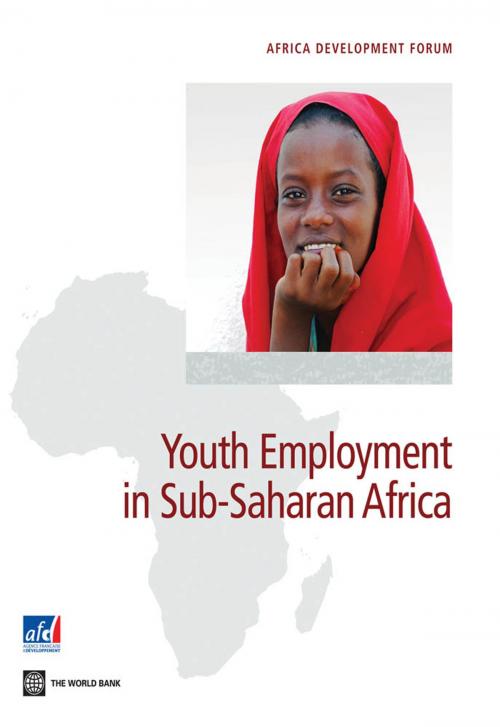| Author: | Deon Filmer, Louise Fox | ISBN: | 9781464801082 |
| Publisher: | World Bank Publications | Publication: | January 24, 2014 |
| Imprint: | Language: | English |
| Author: | Deon Filmer, Louise Fox |
| ISBN: | 9781464801082 |
| Publisher: | World Bank Publications |
| Publication: | January 24, 2014 |
| Imprint: | |
| Language: | English |
High fertility and declining mortality rates have led to a very young population in most Sub-Saharan African countries. The region?s labor force is expected to increase by 11 million people per year over the next 10 years. Most of this increase will be new entrants seeking their first job. While the younger generation is better educated than their parents, they often lack the means to translate that education into productive employment. Today, most work is in nonwage jobs on farms and in household enterprises. Even if greater economic activity were to create the conditions for robust growth and economic transformation, the private modern wage sector in low- and lower-middle-income countries could not absorb all the applicants. This report focuses on how to improve the quality of all jobs and to meet the aspirations of youth. It emphasizes that building a strong foundation for human capital development can play an important role in boosting earnings, and it argues that a balanced approach focused on building skills, raising productivity, and increasing the demand for labor is necessary. Youth Employment in Sub-Saharan Africa notes that many youth employment challenges are problems of employment in general. However, youth is a time of transition, and young people face particular constraints to accessing productive work. The report brings together original analysis of household and labor force surveys; it reviews the experience of a number of promising interventions across the continent; it draws from qualitative studies in several countries; and it surveys the most up-to-date evidence from rigorous evaluations of policies and programs. From this information base, the report provides guidance to policy makers on how to intervene along two dimensions?human capital and the business environment?and in three priority areas?agriculture, household enterprises, and the modern wage sector. The ultimate goals are to increase productivity, improve livelihoods, and multiply opportunities for young people.
High fertility and declining mortality rates have led to a very young population in most Sub-Saharan African countries. The region?s labor force is expected to increase by 11 million people per year over the next 10 years. Most of this increase will be new entrants seeking their first job. While the younger generation is better educated than their parents, they often lack the means to translate that education into productive employment. Today, most work is in nonwage jobs on farms and in household enterprises. Even if greater economic activity were to create the conditions for robust growth and economic transformation, the private modern wage sector in low- and lower-middle-income countries could not absorb all the applicants. This report focuses on how to improve the quality of all jobs and to meet the aspirations of youth. It emphasizes that building a strong foundation for human capital development can play an important role in boosting earnings, and it argues that a balanced approach focused on building skills, raising productivity, and increasing the demand for labor is necessary. Youth Employment in Sub-Saharan Africa notes that many youth employment challenges are problems of employment in general. However, youth is a time of transition, and young people face particular constraints to accessing productive work. The report brings together original analysis of household and labor force surveys; it reviews the experience of a number of promising interventions across the continent; it draws from qualitative studies in several countries; and it surveys the most up-to-date evidence from rigorous evaluations of policies and programs. From this information base, the report provides guidance to policy makers on how to intervene along two dimensions?human capital and the business environment?and in three priority areas?agriculture, household enterprises, and the modern wage sector. The ultimate goals are to increase productivity, improve livelihoods, and multiply opportunities for young people.















